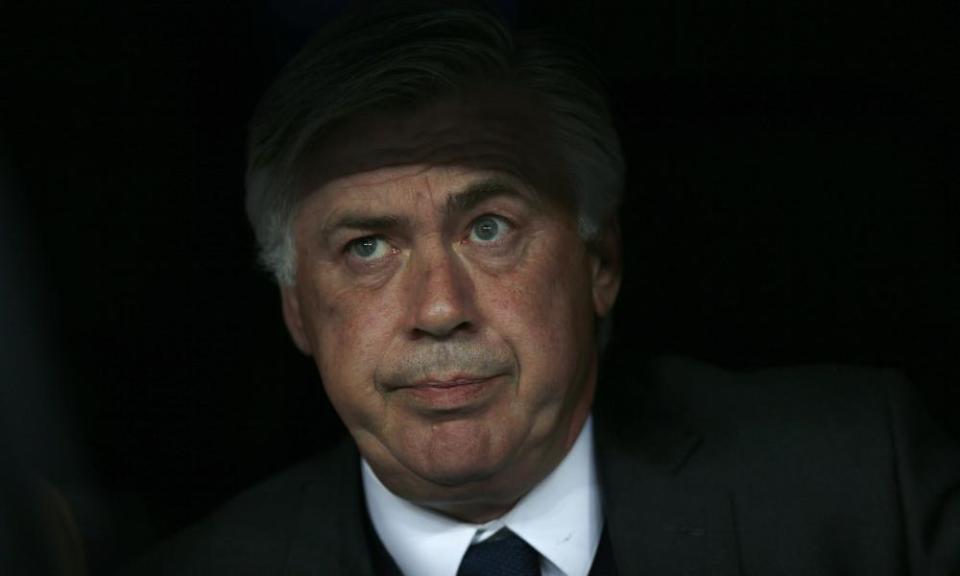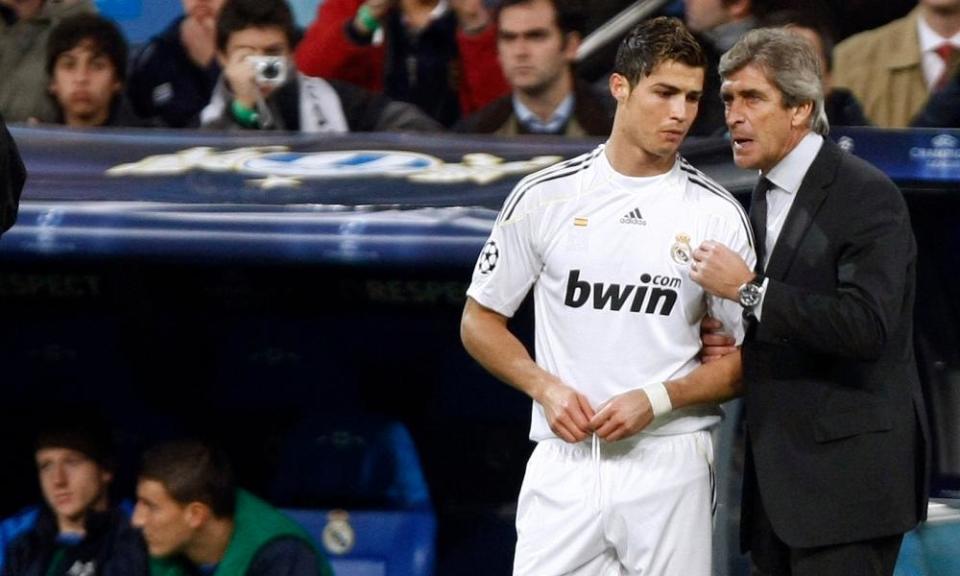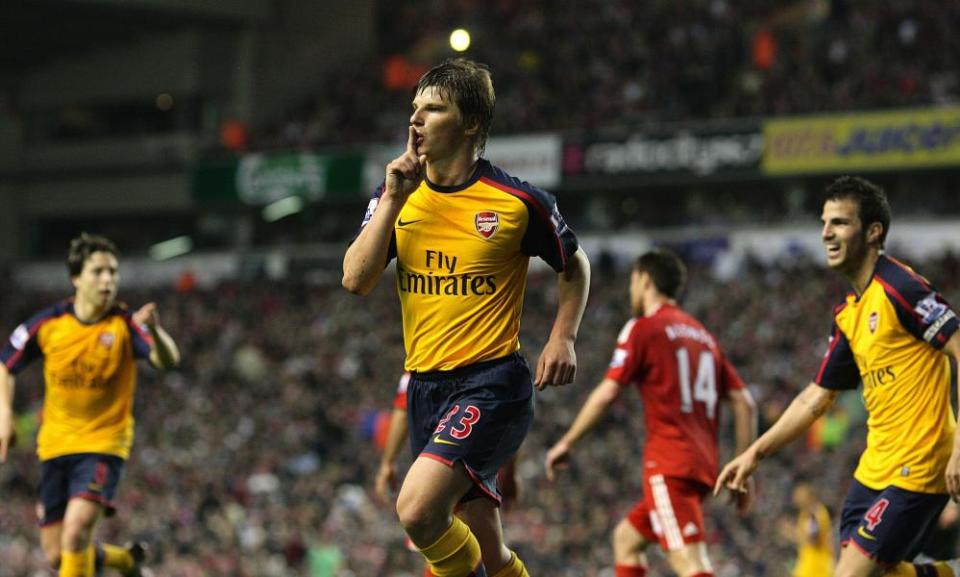Which manager had the highest win percentage when they were sacked?
“Julian Nagelsmann was sacked by Bayern Munich despite a win percentage of 71.4,” says Oisin Hughes. “With a minimum of, say, 10 games, is this a record?”
When, in 1990, that esteemed philosopher Robert Matthew Van Winkle sang, “Anything less than the best is a felony,” he evidently had a vision of 21st-century football. Europe’s superclubs have become so dominant that entitlement and expectation are greater than ever and Julian Nagelsmann’s departure continued the modern trend of managers being sacked for failing to achieve perfection. When you’ve won 10 Bundesliga titles in a row, as Bayern have, being a point behind the leaders just won’t cut it.
Nagelsmann’s win percentage of 71.4 is good, but it’s not quite Carlo. Everyone’s favourite cuddly cigar smoker, Signor Ancelotti, has twice been sacked despite a win percentage in the 70s. Bayern binned him in September 2017 after he had won precisely 70% of his games; like Nagelsmann, Ancelotti won the Bundesliga in his only full season but was knocked out in the quarter-finals of the Champions League.
Ancelotti’s previous job was at Real Madrid from 2013-15. He won the Champions League in 2014 – not just any Champions League, but la decima – along with the Spanish Cup. But the following year Real won nothing apart from the Uefa Super Cup and the Club World Cup. Their Champions League defence ended disappointingly against Juventus in the semi-finals and Ancelotti was on his happy-go-lucky way at the end of the season. He left Real with a win percentage of 74.79.

That puts him 0.01 behind Thomas Tuchel at Paris Saint-Germain. Tuchel was in charge for two and a half years, during which time he took PSG to their first Champions League final, but they lost 1-0 to Bayern and started the following season poorly. Tuchel did win the Champions League that year – with Chelsea, whom he joined soon after getting his P45 from PSG.
Unsurprisingly, given their business model, PSG have a number of ex-managers on this list. Laurent Blanc (72.83%) was sacked in 2016 and his replacement, Unai Emery, left two years later with a spectacular win percentage of 76.32. There is a caveat here: technically Emery left by mutual consent when his contract expired, though most people assume he was sacked.
While Emery makes our list, we’ve put him and the other mutual consenters in italics. That means the clubhouse leaders, both with win percentages of exactly 75%, are Manuel Pellegrini and – yep – George Burley.
Let’s start with Pellegrini. He was appointed Real Madrid manager in 2009, at the beginning of the second galactico era, and by most measurements did pretty well. Madrid finished second behind Pep Guardiola’s extraordinary Barcelona with a La Liga record of P38 W31 D3 L4 F102 A35 Pts 96. They flopped in the Champions League though, going out to Lyon in the round of 16, and were humiliated by Alcorcón in the Copa del Rey. With José Mourinho – fresh from winning the Treble with Internazionale – available at the end of the season, Pellegrini was on his way.

Burley had taken charge of 12 Hearts games, winning nine, when he was sacked by the club’s flammable owner Vladimir Romanov. This is taken from a previous Knowledge about managers who were sacked while their team was top of the league:
George Burley was removed from Tynecastle by owner Vladimir Romanov in October 2005, with Hearts unbeaten and leading the way in Scotland (barely a month after this piece). They finished second, 17 points behind Celtic. Speaking years later, Romanov was remorseless: “We could have lost more with him staying. Without him, we still got second place and the cup as well. All the players brought to Hearts that year were brought by me. George Burley’s influence was very minimal. I don’t know why people think he was the great coach. Look especially at when he was promoted to the Scottish national team – that was one of Scottish football’s biggest farces.”
Finally, the highest win percentage we can find for a manager who was sacked by an English team is Avram Grant’s 66.66 at Chelsea in 2007-08.
Here’s the full list. We’ve only included managers with a win percentage in the 70s and those in italics left by mutual consent. If you have any more, get in touch.
76.32: Unai Emery (PSG, 2016-18)
75.00: Manuel Pellegrini (Real Madrid, 2009-10)
75.00: George Burley (Hearts, 2005)
74.80: Thomas Tuchel (PSG, 2018-20)
74.79: Carlo Ancelotti (Real Madrid, 2013-15)
72.83: Laurent Blanc (PSG, 2013-16)
71.91: José Mourinho (Real Madrid, 2010-13)
Goals but no cigar
@TheKnowledge_GU
Charlie Austin scored 4 today and didn't end up on the winning side.
a) has anyone been on the losing team after scoring 4?
b) what's the most anyone has scored in a game that they haven't won? pic.twitter.com/B2E0J5n5bn— Tom (@Tom_ncfc1902) March 18, 2023
We covered this question back in 2007, though inevitably it pops up from time to time when some poor sucker scores a futile bagful so it’s well worth an update. Let’s start with the people who were mentioned in that column 16 years ago.
Four goals
1982-83: Kerry Dixon (Doncaster 7-5 Reading, Division Three)
1989-90: Dariusz ‘Jackie’ Dziekanowski (Celtic 5-4 Partizan Belgrade (agg: 6-6), Cup Winners’ Cup first round; Partizan through on away goals)
1996-97: Milinko Pantic (Barcelona 5-4 Atletico Madrid (agg: 7-6), Copa del Rey quarter-final)
1997-98 Christian Vieri (Salamanca 5-4 Atletico Madrid, La Liga)
Six goals
1960-61: Denis Law (Luton 2-6 Man City – match abandoned, FA Cup fourth round. City lost the replay 3-1 despite Law scoring again)
Seven goals
1922-23: Billy Minter (Dulwich Hamlet 8-7 St Albans City aet, FA Cup qualifying fourth round replay)
As for more recent examples, a number of you mentioned Andrey Arshavin scoring all of Arsenal’s goals in a madcap 4-4 draw at Anfield in April 2009. Arsenal led 1-0, 3-2 and 4-3 before being pegged back each time, although the draw was ultimately more costly for title-chasing Liverpool than Arsenal. And it was a positive boon for trivia columns circa 2023.

We also missed a few last time round, including a couple of not-as-famous-as-they-should-be examples from World Cups.
Couple from vintage World Cups: Ernst Wilimovski scored four in Poland's 5-6 defeat to Brazil in 1938, while Joseph Hugi did the same in Switzerland's 5-7 defeat to Austria, sixteen years later. (In non-league, there's the tale of Billy Minter here: https://t.co/UIaXRbgMC8. )
— Jeremy Simmonds (@Jah_Womble) March 22, 2023
Marcos Garcia mentions Peter Noble, who scored all four goals for Burnley when they drew 4-4 at home to Norwich in the old Division One in 1975-76. And Russell Connor has two tales from the turn of the century. “Facundo Sava, who latterly used to take that odd mask out of his sock at Fulham, scored four in Gimnasia’s 6-6 draw with Colon in 2000,” he writes. “A year earlier Toni Brogno scored four in Westerlo’s 6-6 draw with the reigning champions Genk, in a game that also featured five penalties, four red cards and presumably a decent amount of injury time.”
Finally, Dan Seppings, who really deserves his own byline this week, says the Vieri example mentioned above is one of five occasions in Europe’s top five leagues that a player has scored four and lost. They are:
1909-10: Albert Shepherd (Liverpool 6-5 Newcastle, Division One)
1914-15: Jimmy Cantrell (Middlesbrough 7-5 Tottenham, Division One)
1973-74: Delio Onnis (Stade de Reims 8-4 Monaco, Ligue 1)
1997-98: Christian Vieri (Salamanca 5-4 Atletico Madrid, La Liga)
2004-05: Cristiano Lucarelli (Parma 6-4 Livorno, Serie A)
Ups and downs in one season
A few weeks ago we looked at players who appeared for the champions and a relegated team in the same season. Dan Seppings has sent in a list of everybody who has achieved this peculiar double in the English top flight – including four players in Leeds’s title-winning squad of 1991-92.
1889-90: Billy Hendry (Preston and Stoke)
1894-95: Davy Hannah (Sunderland and Liverpool)
1933-34: Jimmy Dunne (Arsenal and Sheff Utd)
1966-67: Willie Anderson (Manchester United and Aston Villa)
1986-87: Kevin Langley (Everton and Man City)
1987-88: Ray Houghton (Liverpool and Oxford)
1991-92: Chris Kamara (Leeds and Luton)
1991-92: Imre Varadi (Leeds and Luton)
1991-92: John McClelland (Leeds and Notts County)
1991-92: Tony Agana (Leeds and Notts County)
1992-93: Neil Webb (Man Utd and Nottingham Forest)
1993-94: Gary Walsh (Man Utd and Oldham)
2014-15: Loïc Remy (Chelsea and QPR)
Can you help?
“Has a referee ever had to go off in a league game?” tweets @jaymc82.
@TheKnowledge_GU After Jack Grealish’s glaring failure to convert against Italy, are there any theories as to the derivation of the phrase ‘missed a sitter’?
— Simon Warner (@simon_warner) March 24, 2023
“The bookmakers quoted the Netherlands at bizarre odds of 1-1,000 to beat Gibraltar on Monday. “Has there ever been shorter odds for a football match than this?” asks Philip Rebbeck.
@TheKnowledge_GU Tooting and Mitcham United are about to be relegated from the Isthmain league, south central division. Meanwhile Kingstonian, of the Isthmain premier league are also in danger of relegation. Both play at Tooting's Imperial Fields ground. Is this a first?
— phil withall (@phil_withall) March 26, 2023
“The term ‘Test match’ seems to exist in most sports, usually in reference to international fixtures. Was this ever the case with football and if so, when and why did it stop being used?” asks George Taylor.
Which professional footballer has played at the most stadiums? Someone like Zlatan playing in multiple countries or a lesser known Continental Journeyman?
— Carl Baldwin (@DarkchatCarl) March 24, 2023
“Has a player ever been sent off, then sent off again in their first match back after suspension? Assuming this has happened many times, has a player ever seen red in three consecutive games for which they were eligible? What’s the record?” asks James McWilliam Woods.
Mail us your questions or tweet @TheKnowledge_GU

